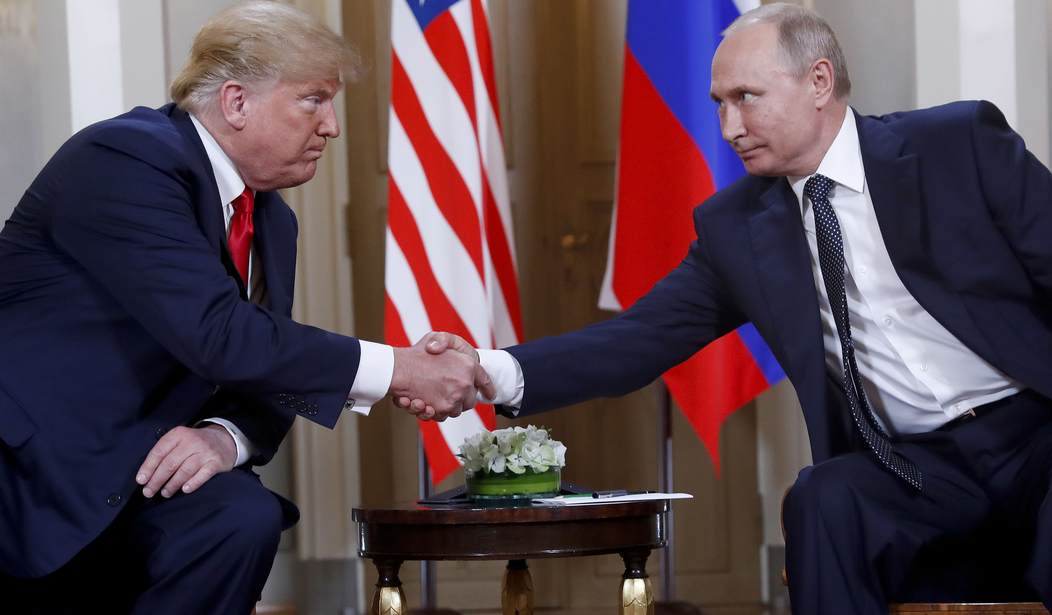During my time as a Congressman, I was involved in the easing of American sanctions on Cuba. President Bill Clinton signed the Trade Sanctions Reform and Export Enhancement Act in October of 2000, marking a major posture shift toward Cuba after nearly sixty years of steady economic sanctions. Cuban-American relations through the twentieth century highlight the fact that the Communist Cuban regime was largely able to persist, despite harsh economic treatment from the United States. Sanctions aren’t always an effective tool to inspire the change we want. Nevertheless, today, American leaders are trying to run the same play against Russia. Vladimir Putin undoubtedly poses a real threat to the United States’ political affairs, and our government has a duty to counter him, particularly as we approach the 2020 presidential election. However, the lessons of history can offer a useful perspective when we look at the most effective way for America to respond today. Although sanctions are often perceived as an easy way to punish a bad actor, some recent proposals out of the Senate will have serious unintended economic consequences with impacts beyond their intended target.
Advertisement
Members of the Senate have offered two legislative proposals to contest Putin’s actions. The Defending American Security from Kremlin Aggression Act, or DASKAA has been sponsored by Senators Lindsey Graham and Bob Menendez, and the Defending Elections from Threats by Establishing Redlines, or DETER Act, is sponsored by Senators Marco Rubio and Chris Van Hollen. While well intentioned, both bills ignore the important economic relationship between Russia and the United States, and pose a threat to the health and longevity of American businesses across a wide variety of sectors which operate in Eastern Europe. DASKAA and DETER are overly broad, inflexible, and will ultimately prohibit American companies from conducting legitimate business in Russia by forcing U.S. suppliers to cancel orders and exit joint ventures with Russian firms. The resulting economic unrest will negatively impact the U.S. economy, hurting domestic employment and impacting global markets in oil, gas, and refined products as well as supply chains for many other industries. The subsequent volatility in prices would extend beyond the United States, blighting economic performance with many of America’s economic partners around the world.
Despite the severe price to be paid by American companies, Russia is unlikely to be even marginally wounded by the sanctions bills. Unable to engage with American firms, Russia could turn to less scrupulous foreign competitors such as Turkey or Qatar in the Middle East or the Chinese, who would eagerly fill the gaps left vacant by American companies. Years of building transparent, accountable, and fair business practices with Russia would be lost. The reduced economic influence would ultimately give the United States less leverage to punish Putin and other Russian oligarchs who worked to undermine our elections. China in particular stands to gain much from Russia’s diminished trade with the United States. U.S. sanctions on Russia are welcomed by China because they drive the two countries closer. For the Chinese, a friendly posture with Russia guarantees that China’s northern and western frontiers are protected, and reduces focus on the American rebalance to the Asia-Pacific.
Recommended
Advertisement
Broad unilateral sanctions against Russia have proven to be less than effective in the past. Since sanctions were imposed in 2014 by the U.S., and renewed subsequently ever since in both the U.S. and the European Union, Putin has continued his belligerence with Russia’s neighbors. After the annexation of Crimea and the imposition of sanctions, Russian military forces permeated the Ukrainian border in November 2014. In December 2015, Putin admitted for the first time that he ordered the presence of Russian military specialists in east Ukraine.
Congress should take a more targeted approach. Senator Cory Gardner’s Cyber Deterrence and Response Act (CDRA) would punish those responsible for interfering in American elections without adversely affecting American interests. Instead of indiscriminately targeting important international financial, energy, and manufacturing operations, CDRA would allow the President to designate a foreign state or group a “critical cyber threat actor” and punish individuals though targeted sanctions. Equally important, the law would allow the President to waive sanctions as needed, to ensure the protection of American interests abroad and account for changing geopolitical postures.
As a former Congressman, I know the value of good sound bites, however, politically expedient messaging shouldn’t trump the health of America’s economy and commercial relationships. DASKAA and DETER will hurt American interests abroad. Just like Cuba in 2000, America should work creatively and intelligently to bolster our international relationships and punish our geopolitical rivals.
Advertisement
George Nethercutt is the former Congressman from the 5th District of Washington and the former Vice-Chairman of the Committee on Appropriations subcommittee on National Security.

























Join the conversation as a VIP Member